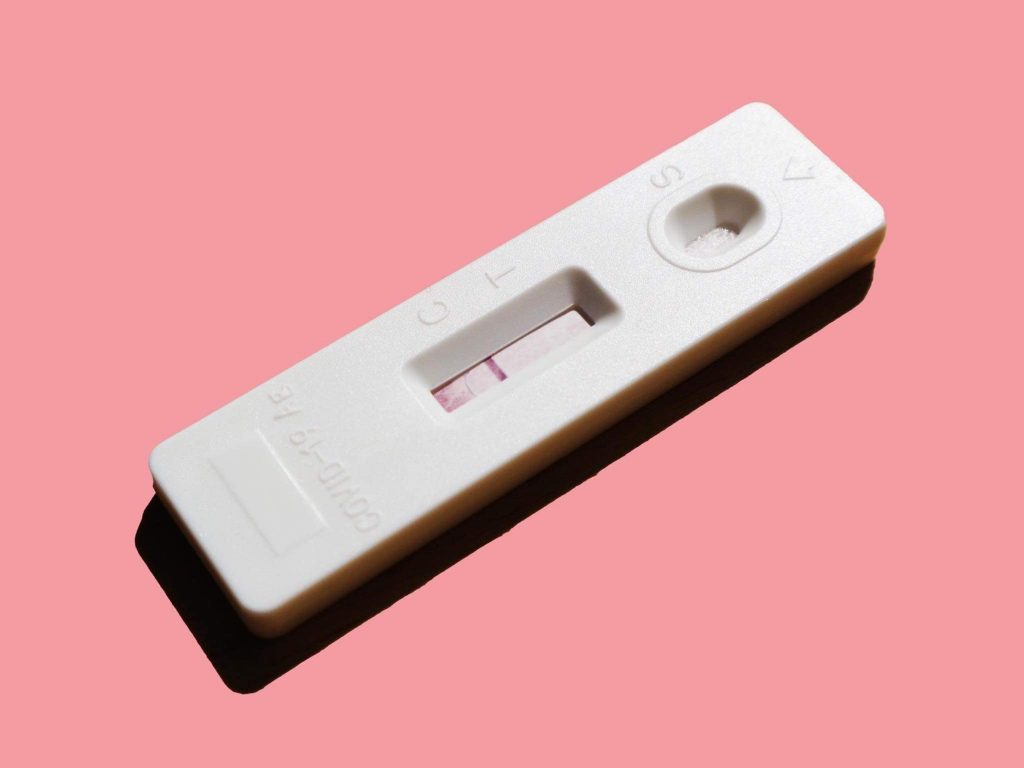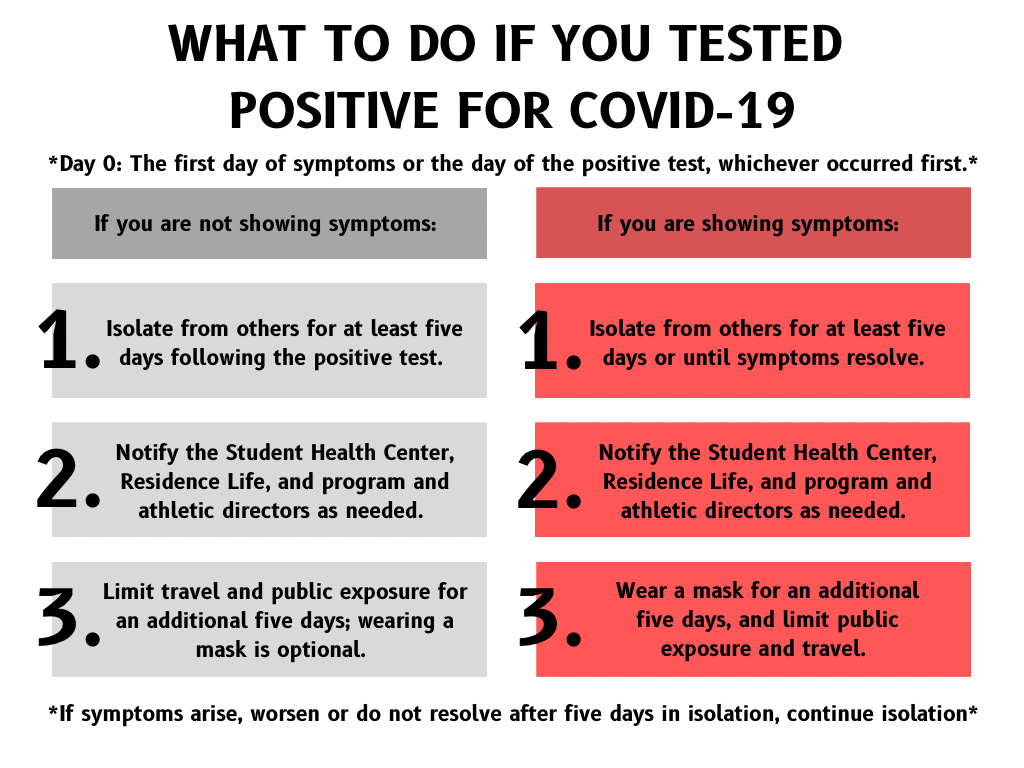
Nearly three years into the COVID-19 pandemic, responses from institutions of higher education remain ever-changing. Just ahead of the fall 2022 semester and amid declining local cases, William Jewell College released its 2022-23 Health and Safety Guidelines in July and announced a major revision on Sept. 01.
Compared to Jewell’s previous COVID-19 responses, Vice President for Finance and Operations Daniel Holt explained that this year’s shortened guidelines feature only the most efficient and accurate measures to support community health.
“You will find a much shorter list of guidelines than what was released with Operation Safe [Campus] and Operation Resurgent Campus,” Holt said. “This is intentional, as our community has learned from the past two years the best practices that keep the Jewell community safe and the most frequently asked questions.”
Despite the decline in local cases, some students remain at risk for transmission due to exposure during travel or athletic events. This semester, various small outbreaks affected groups of students, but were ultimately contained as everyone followed appropriate guidelines. Overall, a key point in Jewell’s guidelines encourages students to use campus resources such as the Student Health Center when situations regarding potential exposure and isolation arise.
According to nurse practitioner Courtney Cooper, MSN, FNP-C, CEN, and registered nurse Christina Graskemper, BSN, CPN, the Student Health Center is a centralized resource for students who may need additional support during the pandemic and otherwise. Employed through The Liberty Clinic, Cooper and Graskemper work the majority of their hours at the Student Health Center and provide in-person and telehealth services to students on weekdays from 8 a.m. to 12:30 p.m. and from 1 to 4:30 p.m.
“We provide education to all students regarding when to test and quarantine guidelines,” they said. “We coordinate with student life and dining services to make sure the students that test positive have what they need during the quarantine period. We [also] work with the professors and athletic department to help the students maintain a good academic standing.”
Cooper and Graskemper maintain that services provided at the Student Health Center align with up-to-date policies and recommendations set by Jewell and the Centers for Disease Control and Prevention (CDC). In addition to guidance on testing, they currently offer free, self-administered COVID-19 tests to students who are experiencing symptoms.
“According to the CDC, if a student is having symptoms, [they] should test immediately,” Cooper and Graskemper explain. “[However,] a negative test does not rule out a COVID-19 infection. There is a chance that you can test too soon, which means you tested before the virus was detectable. Therefore, if we have a student in the Health Center who has been sick for less than 24 hours that tests negative, we recommend re-testing once they have been experiencing symptoms for more than 24 hours. …If you have been exposed to COVID-19, but are asymptomatic, you should wait five full days before testing.”
Regardless of vaccination status, Jewell’s guidelines state that everyone should follow the same isolation procedure if sick; however, additional masking requirements are reliant on whether an individual experiences symptoms or not.
The guidelines are based on a timeline established by the CDC with day zero defined as day that symptoms arose or the day that an individual took the test, whichever occurred first. Importantly, the CDC notes, the day that a positive test result is received may not necessarily be the same day that the test was performed.
As soon as an individual receives a positive test result, Cooper and Graskemper add, they must immediately begin following appropriate guidelines and notify anyone that they were in contact with over the previous two days.
“Individuals need to quarantine alone for days 1-5,” Cooper and Graskemper state. “If symptoms are improving after day five, [they] may be out in public only if wearing a well-fitted mask. [They] need to wear the mask in public for days 6-10. On day 11, you are allowed to be mask-free. If your symptoms are not improving after day five, you are to continue to quarantine at home for the full 10 days.”
Similar to those with symptomatic infections, Jewell’s guidelines instruct individuals experiencing no symptoms to isolate themselves for days 1-5. However, in accordance with updated CDC recommendations, they are no longer required to wear a mask during days 6-10 – a change reflected in the updated version of Jewell’s guidelines that were released on Sept. 01.
In either circumstance, if symptoms develop or worsen at any point, the CDC recommends restarting isolation at day zero. Students who need to isolate but live with a roommate should notify Student Life for temporary housing — a positive COVID-19 test is no longer required for this process.
The Student Health Center also recommends that students check in with their health care provider if they need relief from COVID-19 symptoms during the isolation period.

Listed in the 2022-23 guidelines and reiterated by Holt, Jewell’s response to COVID-19 is largely dependent on local transmission and infection rates: “In the event of a surge of infection on campus and strain on local healthcare capacities, strategies from previous guidelines may be implemented,” the guidelines document states.
As of late-October, the Clay County Public Health Center reports transmission of COVID-19 in the county remains low with a seven-date case rate of about 63 per 100,000 people. Similarly, the Missouri Department of Health notes low community levels in all of the state’s seven regions. Both health departments state they use the CDC’s guidelines for categorizing and responding to low, medium and high community levels.
Summarizing the week of Oct. 21, the CDC reports 80.9% of U.S. counties and territories are experiencing low community levels. Although many Omicron variants are circling the U.S., the CDC remarks that they still make up a small minority of cases and are being monitored closely.
In the event that Clay County advances to a medium community level or higher, Jewell’s guidelines recommend that individuals at higher risk of COVID-19 symptoms wear a mask as needed. However, with community transmission expected to continue declining, Jewell anticipates a partial return to normalcy this year, writing in the guidelines document that the 2022-23 experience “will resemble pre-pandemic semesters with an increased mindfulness of personal wellbeing.”
